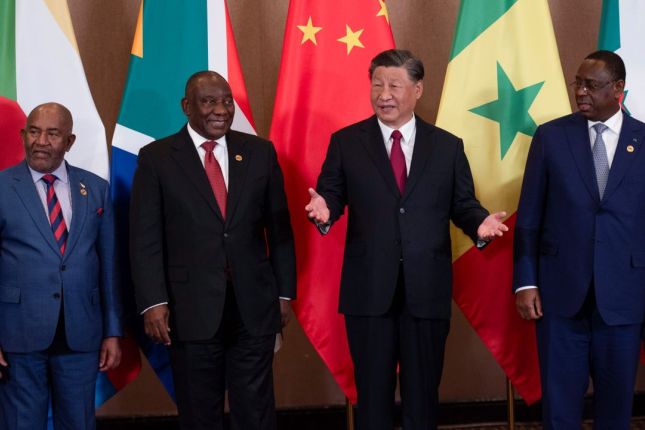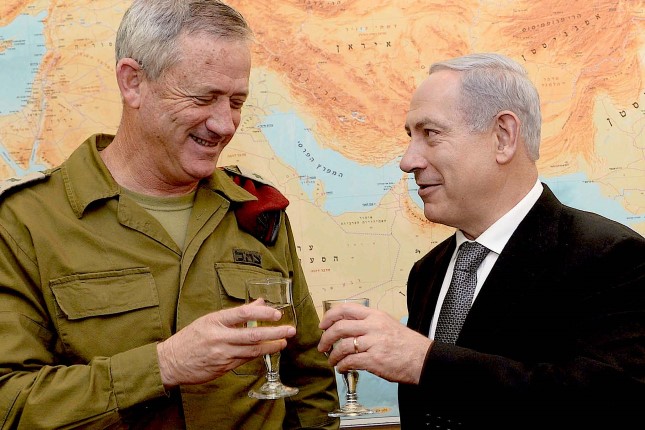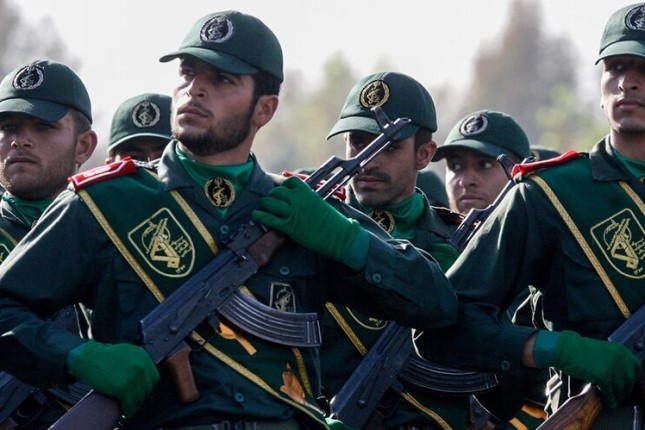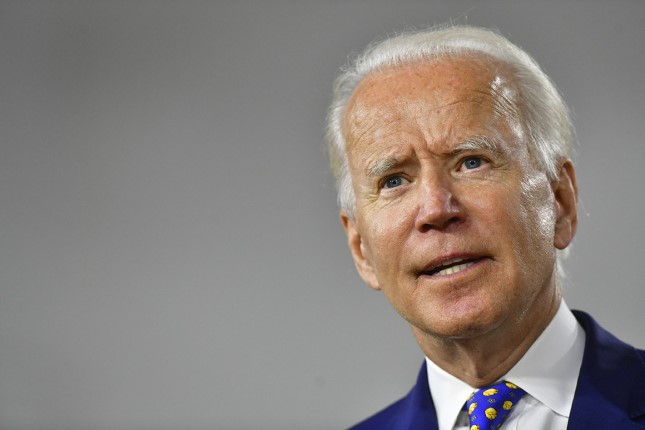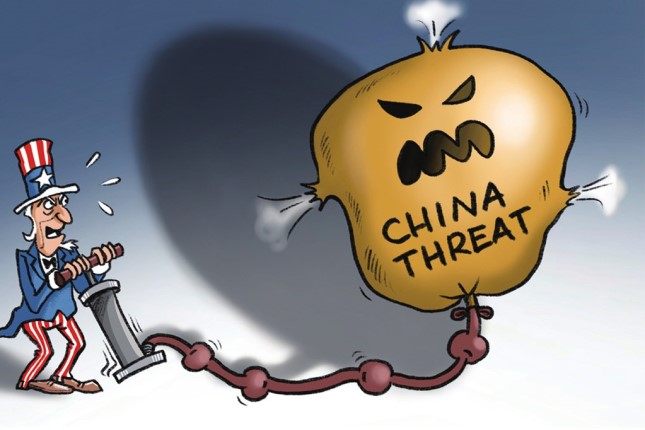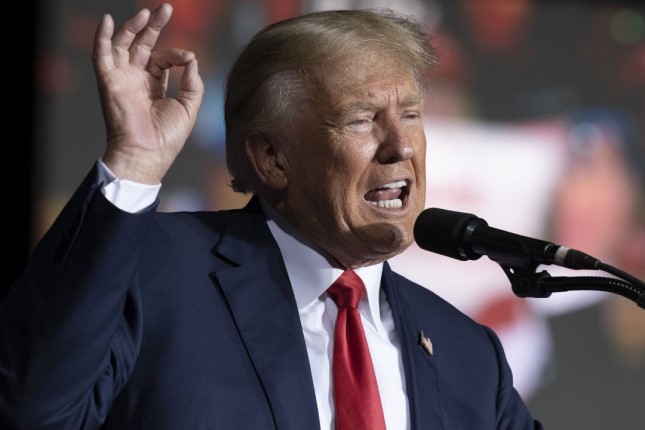The summit of the BRICS group of countries—Brazil, Russia, India, China and South Africa—held last week marked a significant bid for greater economic influence on the world stage. A Financial Times commentator rather grandiosely declared that the meeting had the potential to be seen as "the 21st-century equivalent of the Bandung conference of 1955, which launched the non-aligned movement."
The world has fundamentally changed since the dissolution of the Soviet Union in 1991 and the end of the Cold War, during which non-aligned countries manoeuvred between the Soviet and US-dominated blocs. Far from opening up a new era of peace and stability, the world is riven with far deeper economic instability and geo-political tensions. The US and its NATO allies are waging war against Russia in Ukraine even as Washington intensifies its confrontation and preparations for conflict Beijing.
Pushed by China, the BRICS summit agreed to the expansion of its membership by six countries—Argentina, Egypt, Ethiopia, Iran, Saudi Arabia and the United Arab Emirates (UAE)—as of the beginning of next year. This is just the first stage of a further expansion that could include countries such as Nigeria, Mexico, Venezuela and Vietnam, substantially increasing the economic weight of the bloc.
Much of the commentary in the US and Western press has focussed on the obvious political divergences, rivalries and tensions that divide the countries in this grouping. Even before its expansion, India and China have been at loggerheads over border disputes, with India part of the Quadrilateral Security Dialogue—a US-led quasi-military pact aimed against China.
Saudi Arabia, Egypt and UAE are all closely aligned with the US, while Washington has maintained heavy punitive sanctions on Iran on the pretext of its nuclear programs. Moreover, Iran and Saudi Arabia are bitter rivals for influence in the Middle East and severed diplomatic ties in 2016. Significantly, China brokered the reestablishment of relations between the two Middle Eastern powers in March.
China and Russia clearly viewed the summit as a means of countering the concerted efforts of the US and its allies to isolate and vilify them. Russian President Vladimir Putin, who faces an International Criminal Court arrest warrant on concocted war crimes charges, took part in the gathering via video link.
Chinese President Xi Jinping, who arrived ahead of other leaders for a state visit, was feted by the South African government and inducted into the Order of South Africa—an indication of China's importance in the BRICS grouping. Xi also held a meeting with African leaders on the sidelines of the summit, promising China would "better harness its resources for co-operation" with Africa.
In promoting the expansion of BRICS, China has suggested that the bloc could become a counterweight to the G7 group and other US-dominated institutions such as the International Monetary Fund (IMF) and the World Bank.
In his prepared statement, Xi lashed out at the US, without naming it, as a country "obsessed with maintaining its hegemony," that had "gone out of its way to cripple the emerging markets, and developing countries." He warned against the danger of sleepwalking "into the abyss of a new cold war."
Citing the BRICS internal divergence of views on key issues, White House National Security Advisor Jake Sullivan played down the significance of its expansion, declaring that he did not see it as "evolving into some kind of geo-political rival to the United States or anyone else."
Nevertheless, yesterday's editorial in the Australian declared that the summit signalled the transformation of the "previously inconsequential five-nation BRICS alliance" into an expanded, well-funded body primed to advance Chinese and Russian geo-political interests. Reflecting Republican criticism in Washington, it blamed Biden for strained relations with Saudi Arabia and other US allies, warning: "The West will pay a heavy price if it fails to counter the five-nation alliance becoming a potent new player on the world stage."
An obvious issue is studiously avoided in most of the commentary surrounding the summit. Given the glaring divergences between members of the BRICS, the question is, what is bringing these countries together.
In his comments, South African President Cyril Ramaphosa pointed to the mutual concern about the domination of the US dollar in international financial transactions. "There is a global momentum for the use of local currencies, alternative financial arrangements and alternative payments systems," he said.
BRICS leaders have instructed their finance ministers and central bank governors to develop ways of reducing their reliance on the US dollar in trade with other member countries.
The attempts to diminish the reliance on the US dollar have been driven by the manner in which US imperialism has exploited the currency's global position as a financial weapon against targeted countries. The fear in capitals around the world, including those aligned with Washington, was dramatically increased after the Biden administration froze Russia's central bank reserves following the onset of the war in Ukraine.
Former UN secretary-general Kofi Annan aide Nader Mousavizadeh, cited in the Financial Times, explained that it was not the US-NATO war against Russia in Ukraine so much as the freezing of Russian assets that provoked consternation.
Referring to the scattered nature of the grouping as an "archipelago," he explained: "For middle powers, it was the equivalent of someone going in and seizing embassy property. It was a reminder that you can have this sense of opportunity in the archipelago but that the alternatives to a US dollar world do not exist.
"Many thought we have to do whatever it takes to avoid being in the position of having reserves of this magnitude frozen in the future. That was Modi's main response and many other middle power governments including in the Middle East were obsessed about this too."
While Brazilian President Luiz Inácio Lula da Silva floated the idea of a common BRICS currency prior to the summit, it gained no traction. The ability of any currency, including the Chinese renminbi, to replace the US dollar as the global currency faces major obstacles which cannot be overcome in a disparate grouping such as an expanded BRICS.
Nevertheless, as a lengthy four-part series in the Financial Times entitled "The Rise of the Middle Powers" explained, China's strategy is to chip away at the US dollar's dominance by encouraging transactions in renminbi. The fourth part of the series began by noting that last month Argentina, strapped for US dollar reserves, made a payment to the IMF in renminbi instead.
As the article explained, China is engaged in a multi-prong strategy to minimise the global use of the US dollar. This includes the creation of a larger pool of renminbi liquidity in offshore capital markets to facilitate its wider use by traders and investors; the establishment of the Cross-Border Interbank Payment System (Cips) as a rival to the existing dollar-denominated inter-bank settlement systems Chips and Swift; and the launching of a digital renminbi.
These strategies face considerable obstacles, not least China's developing internal financial turmoil and the determination of the US to maintain the dollar's dominance. What is clear, however, is that US imperialism's economic and military aggression is driving countries to reconsider previous antagonisms in the face of a common threat.
While BRICS, even in its expanded form, hardly matches the economic clout of the imperialist powers gathered together under the G7 grouping, its consolidation is another ominous echo of the economic and currency blocs formed in the 1930s as the world hurtled toward a disastrous global conflict.
Main photo: President of China Xi Jinping, center, and South African President Cyril Ramaphosa, second left, attend the China-Africa Leaders' Roundtable Dialogue on the last day of the BRICS Summit in South Africa, Aug. 24, 2023. © AP Photo/Alet Pretorius
Source: World Socialist Web Site
